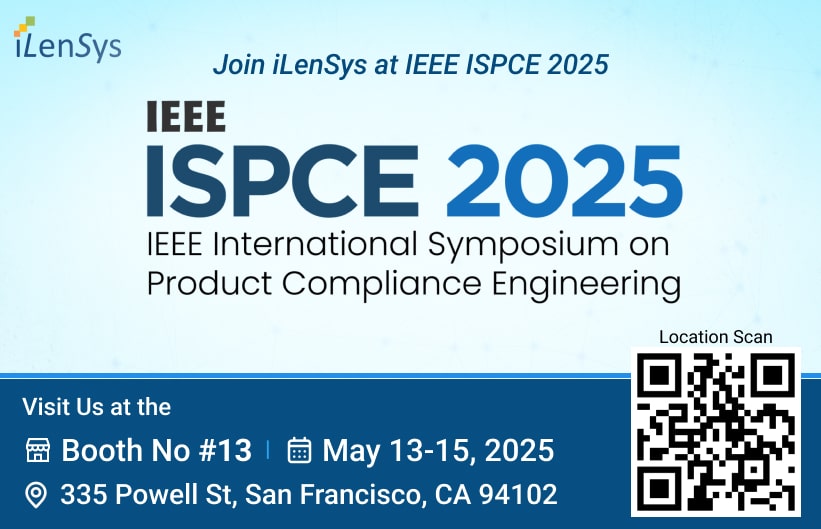Today, with countries and businesses more connected than ever, ensuring product compliance with international standards and regulations is not just a legal necessity but a strategic advantage. This deep dive into the world of global regulations and standards reveals why adherence is pivotal for manufacturers and how it influences the safety, efficiency, and marketability of products and their critical components across borders.
Understanding Critical Components
Critical components are the backbone of product safety and functionality. They are key elements whose failure could lead to hazardous situations or product dysfunction. The global regulatory landscape recognizes the significance of these components, requiring stringent testing and certification to mitigate risks associated with electrical, mechanical, thermal, chemical, and other hazards.
Global Regulations and Standards
To place products in the global market, manufacturers must navigate a maze of international regulations and standards. Key certifications include:
- CE Marking: A manufacturer's declaration that the product complies with the EU's safety, health, and environmental requirements. CE Marking is crucial for products traded within the European Economic Area (EEA).
- FCC Certification: For products sold in the United States, FCC certification ensures that electromagnetic interference from the device is within limits approved by the Federal Communications Commission.
- UL Certification: Underwriter Laboratories (UL) certification is recognized globally, certifying that products meet specific safety standards, making the world a safer place for both workers and consumers.
- CB Certification: The CB Scheme facilitates international trade by allowing test results from participating laboratories and certification organizations to be accepted worldwide.
Why Certification Mark Validity Needs to Be Checked
The validity of certification marks, acting as conformity or assurance symbols, is crucial. These marks not only provide consumers with a readily identifiable quality assessment tool but also assure them of the product's successful testing and compliance. While mandatory for products at risk of regulatory non-compliance, they serve an advisory role for others, indicating promotional value rather than legal necessity. Verifying these marks is essential for addressing regulatory non-compliance risks, product feature changes, and component modifications.
Certification marks can become invalid due to a variety of reasons, including the expiration of certificates, non-compliance due to failure in meeting updated standards, regulatory or standard changes, recurrent non-conformity during quality audits, misuse of certification marks, and alterations in manufacturing processes without obtaining re-certification. These factors can all lead to the invalidation of certification marks.
The responsibility to ensure adherence to all relevant scenarios rests with specific individuals or teams within an organization. These personnel might use tools ranging from spreadsheets to specialized regulatory software, like the iLenSys Regulatory Master tool, to manage and verify regulatory compliance effectively.
Testing and Certification Procedures
Ensuring compliance involves comprehensive testing and certification processes, including but not limited to:
Safety Testing
- Safety tests for electrical, mechanical, thermal, and chemical hazards.
- Electromagnetic compatibility (EMC) and electromagnetic fields (EMF) impact tests.
EMC Testing Lab
- Energy efficiency and environmental protection assessments.
- Usability, acoustic, and noise emission tests.
Managing Changes in Critical Components
Modifying a critical component can significantly affect a product's functionality and compliance status. Manufacturers should use components as per the specifications to maintain safety during operational failures. Changes necessitate re-evaluation and potential re-certification to maintain compliance
and ensure product integrity in the face of evolving standards and regulations
Adapting to Diverse Market Requirements
Manufacturers aiming for a global presence must adapt their products to meet the diverse regulatory requirements of international markets. This involves a proactive approach to compliance, from the design phase through deployment, to anticipate and meet the specific demands of each market, ensuring product integrity and safety.
The Strategic Advantage
Compliance with international standards and regulations is more than a legal checkbox; it's a strategic advantage in the competitive global marketplace. It builds consumer trust, opens doors to new markets, and lays the foundation for sustainable business growth.
As manufacturers navigate the complex terrain of global market access, understanding and adhering to the regulatory requirements for critical components becomes a cornerstone of success. It's a commitment to safety, quality, and reliability that resonates with consumers worldwide, driving demand and fostering brand loyalty in an increasingly connected world.
What's Next in Global Compliance
The landscape of global regulations is ever-evolving, with new standards emerging as technology advances. Manufacturers must stay abreast of these changes to ensure ongoing compliance. Upcoming regulations may focus more on sustainability, digital security, and advanced safety features, reflecting the growing importance of these areas in product design and functionality.
Future-Proofing Your Products with iLenSys Technologies
At iLenSys Technologies, we understand the complexities of navigating global markets and the importance of compliance for critical components. Our forward-thinking approach and expert services are designed to keep your products compliant, efficient, and competitive, no matter where you choose to market them.
Summary
Adhering to international regulations and standards is crucial for manufacturers aiming to distribute their products globally. Compliance not only ensures product safety and functionality but also serves as a strategic advantage in the global marketplace. As regulations evolve, staying informed and prepared is key to success.
Call to Action
Are you ready to ensure your product meets global compliance standards? Contact iLenSys Technologies today. Our team of experts is equipped to guide you through the complexities of certification and help you navigate the global market with confidence.
FAQs
- How often do global compliance standards change?
Compliance standards can evolve frequently, with updates typically occurring every few years. However, the pace of change can vary by industry and regulatory body. - Can iLenSys Technologies help with compliance for all markets?
Yes, iLenSys Technologies offers comprehensive services designed to address global compliance requirements across a variety of markets. - What happens if a product fails to meet compliance standards?
Non-compliant products may face restrictions, including being barred from certain markets, recalls, or penalties. It's crucial to ensure compliance before product launch. - How can I stay updated on compliance changes?
Partnering with a compliance expert like iLenSys Technologies can help. We provide ongoing support and updates to ensure your products remain compliant with the latest standards.
Talk to ours Regulatory & Product Safety Experts.
By submitting this form, I agree to receive emails about iLenSys's products and services as per the Terms of Use. I can unsubscribe at any time via the 'unsubscribe' link in iLenSys emails or by emailing contact@ilensys.com. I also agree to the Privacy Policy.
Sign up for the latest Blogs, Case studies, Whitepapers, Webinars and Videos.
- Blogs
- Case Studies
- News and Updates
- Videos
- Webinars
- White Papers
-
- Product Environmental Compliance
- Obsolescence Management
- Regulatory & Product Safety
-
-
-
-
-
-
- New Product Development
- Mechanical Design
- FEA Validation
- Benchmarking and Value Engineering
- 3D Scanning and Reverse Engineering
- 3D Printing
-
- Embedded Systems
-
- Industrial Automation
-
- Quality Assurance and Regulatory Affairs
-
- Extended Reality
- 3D Animation & Video Production
- WebGL Development
- Graphics and UI/UX Reality
-
- Technical Documentation
-
- Early Engineering Talent (EET)
-
-
-
- Lab Equipment
- Medical Devices and Equipment
-
- Scientific Instruments
-
- Life Sciences
-
- Static and Mobile Equipment
-
- Material Handling Equipment
-




